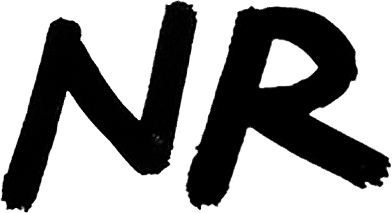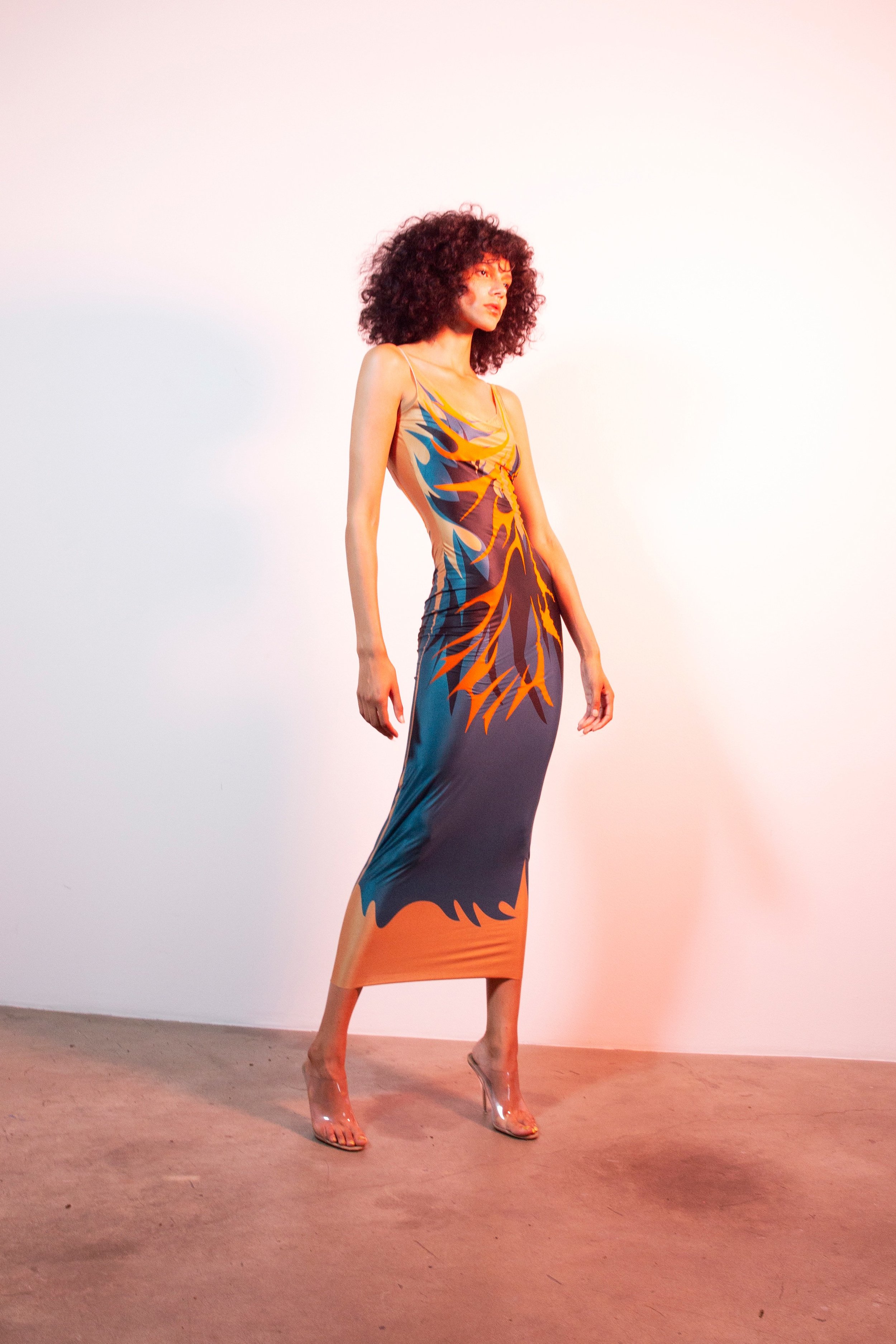VOGUE RUNWAY: Maisie Wilen Resort 2020 Review
Maisie Wilen is a new ready-to-wear label from Chicago-born and Los Angeles–based Maisie Schloss. Its surname moniker—Schloss’s mother’s—is pronounced willenand not wylin, as one might phonetically lean. However, during her interview with Vogue Runway—held in advance of a friends-and-family preview at L.A.’s Night Gallery, before the pre-collection relocates to Paris for sales and press later this month—Schloss herself accidentally spoke it as wylin. She laughed, a little dismayed. She was nervous.
Those nerves can melt away for the time being—this designer is onto something. Schloss’s first effort is accessible yet wild-side eclectic, offering a deft mix of art-school flare with disciplined calibration. It either soapily shimmers with ’90s-era euphoria for evening, or stands fortified with strong, salable sportswear for day. It’s not so common to see ideas that are uncompromisingly singular in aesthetic yet broad in appeal. Boiled down: These clothes are going to be popular.
Schloss is a Parsons womenswear alum, and her expertise was furthered while working for Kanye West’s brand, Yeezy. In fact, West is Schloss’s investor. Her startup is reportedly his first venture in what will be a stable of labels—West approached Schloss at Yeezy about a year ago, and she began working independently, with his blessing and bank-rolling, last November. Through an email, West would only say “Maisie has always had a strong perspective and we’re truly pleased with her first collection.” He likely wanted to limit his commentary in order to let his protégé hold the spotlight (or let the designs speak for themselves; Schloss said West’s wife, Kim Kardashian West, would be “receiving a box”). It’d be interesting to hear, though, what West specifically saw in Schloss—he’s well-known for his style instincts (and, frankly, his trend-creating). There must have been something he noticed early.
Back to the clothes: Polychrome jersey dresses with raw-cut necklines featured semi-animalistic prints, overlaid with biodynamic ovate blotting. “These are the backbone of the collection,” said Schloss. “The fabric can be printed beautifully. I was looking at gymnastics costumes, and the cut-outs that they have, which look so gestural on the body. And I was also looking at pictures of robotics.” Some tops had loops at the sleeve, which slipped over the middle finger, creating an extended and pointed arm. “I think gymnastics and robots mirror my work well, in that I am systematic and regimented in how I operate, but the outcome looks organic.” Elsewhere, there were paint-by-numbers tees, which will come with Sharpies so that buyers can customize the pieces at will. Additionally, Schloss layered in hyper-cropped and cinched synthetic-coated cotton jersey jackets, perforated knits, and python-patterned separates. At retail, the highest price garment “maxes out around $1,000.”
If there were shades of Demna Gvasalia’s Balenciaga, they weren’t problematic—Rihanna’s recent Fenty unveiling had those shades, too. Rather, this was Schloss’s distillation of the times at hand, and it’s not exactly an easily definable moment. Is fashion appropriate for political commentary? Is fashion too wasteful? Has fashion gotten too excessive? Does anyone even care about fashion anymore? Whatever one’s take, Maisie Wilen lands as a needed upper—it is serious design with a fun, tangy aftertaste. The outcome: clothes that one wants to wear and to see based solely on desire, detached from the weightiness of the bigger picture. Perhaps this is what West found in Schloss: a fresh start.
To view on Vogue Runway, please click here.

